SEPTIC SYSTEM:
A COST & CONSUMER GUIDE
If you're dealing with foul odors, slow drainage, and flushing problems– these telling signs may point towards a particular septic system issue. Of course, your household wastewater is filled with potentially harmful bacteria. It is then essential to maintain the performance of your home's septic system, ensuring that all the waste is disposed of correctly without putting your sinks and toilets at risk of contamination. (Related: Plumbing Terms Every Homeowner Should Know When Remodeling Their Bathroom)
AVERAGE COST OF SEPTIC TANK SYSTEM
$4,295 - $13,864
1,000-gallon sized tanK (3-BEDROOM)
$2,835 - $6,750
1,250-gallon sized tanK (4-BEDROOM)
$2,025 to $6,750
Suppose your current septic system has been around for quite a while, probably for more than 20 years, it might be the right time to have it replaced with a new one. When it comes to installing a septic system, there are several factors you need to consider. The costs do not stop after buying a particular septic tank system upfront. There are possible repairs and permit expenses you also need to add to the total running tab.
For your guidance, this article will discuss everything you need to know regarding septic tank costs and other related expenses in keeping a fully functioning septic system at home.
Average Costs of Installing a Septic System
A septic system refers to an underground chamber that deals with domestic wastewater. It is designed to keep the wastewater until grease and oil float to the surface and solids settle at the bottom before filtering out the liquid waste. Expect a septic tank system to cost you anywhere between $4,295 and $13,864. On average, it costs about $9,079. The total costs of installing a septic system will be unique on a case-to-case basis, as it heavily depends on defining factors such as septic system type, size, and material.

If you own a 3-bedroom home, a standard 1,000-gallon sized tank is priced at $2,835 to $6,750. Materials alone will typically cost you $810 to $3,375– excluding labor. Meanwhile, a larger 1,250-gallon tank is priced at $2,025 to $6,750, perfect for most four-bedroom homes. Installing a complete septic system with a leach field, tank installation, and piping will be around $13,500 to $33,750.
A general rule of thumb is to choose a septic system size and type according to the number of rooms in your household. It is because the bedrooms generally define the number of occupants in a home.
For the average-sized household, you can select sizes at a thousand gallons. Larger homes may need you to consider up to the 3,000-gallon size range.
Common Types of Septic Tank System
Did you know that the first septic tanks rose to popularity in the 1960s? They have been in use as early as the late 1800s, but most homeowners preferred to use a cesspool in the early days. Fast forward to today, there are different types of septic tank systems to address your every need.
A standard underground wastewater treatment structure typically consists of:

Septic Tank

Distribution Box

Leach Field
The system discharges the liquid from the septic tanks into perforated pipes buried in a leach field designed to release the liquid into the soil slowly. The liquid from the septic tanks (effluent) will be discharged into pipes in the leach field before being gradually released into the soil.
Here's a quick overview of the most popular septic tank system types and their associated average costs:
Septic Tank System Type | Average Costs |
|---|---|
Anaerobic Septic System Aerobic Septic System Gravity Septic System Conventional Septic System Mound Septic System Chamber Septic System Pressure Distribution Septic System Engineered Septic System | $2,700 - $6,750 $13,500 - $27,000 $2,025 - $5,400 $2,700 - $6,750 $13,500 - $27,000 $2,025 - $5,400 $9,450 - $13,500 $16,200 - $20,250 |
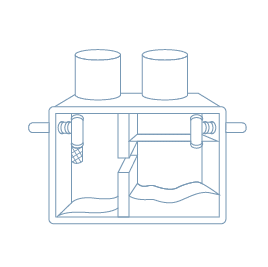
The moment your leach field or drain field turns oversaturated, you may be putting your home at risk of wastewater backup. Worse, it may even cause flooding and overloading in your toilet and sink. The cost of installing a new one runs from $4,725 to $14,850.
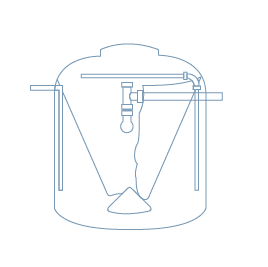
In contrast with anaerobic systems, aerobic septic systems utilize oxygen-dependent bacteria. Hence, it would be best to supply the tank with sufficient oxygen for the bacteria to break down solid waste. This septic system type is ideal for households located near bodies of water– although it will considerably cost you more in its installation at $13,500 to $27,000.
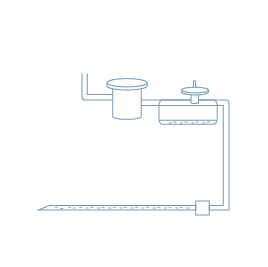
This type of septic system utilizes gravity for filtration and water flow purposes. The installation may be challenging, as it needs to be located on a slope for consistent water flow minus the pump. Its average cost of installation is from $2,025 to $5,400.
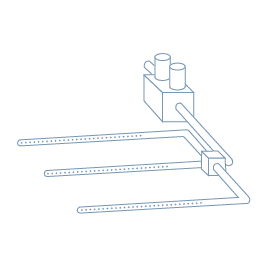
A conventional septic system refers to a standard tank and drain fields (or trench). The latter is usually built on concrete or stone to allow the free flow of water. Note that this system typically requires ample space for operation and may cost $2,700 to $6,750.
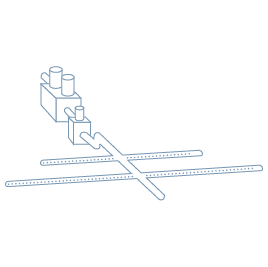
This septic system is an ideal choice if your groundwater is located near the surface. Generally, a sand mound is used to filter the water before it reaches the groundwater or soil. It can be costly to install, given that you will need to build a sand mound. Expect to spend around $13,500 to $27,000.
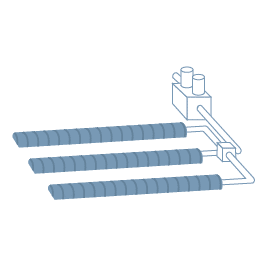
This is an increasingly popular septic system by the day. It is similar to conventional methods, but plastic chambers are utilized in place of gravel. Homeowners can benefit from its easy installation and lesser carbon footprint. It is priced between $2,025 and $5,400 to install.

Ranging from $9,450 to $13,500, you can install a pressure distribution septic system at home. It can be built within two feet of the water table. Pumps efficiently transfer the wastewater into the drain field before it reaches the water table.
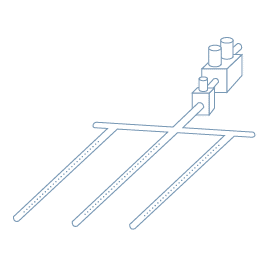
Suppose your soil is too permeable for a standard septic tank. In that case, you may need to opt for an engineered septic system instead. It is designed to forcefully pump the wastewater into a customized, engineered drain field. Expect to shell out around $16,200 to $20,250 for this specialized system.
Factors Affecting the Cost of Septic Tank System
Note that the upfront cost of buying a septic system is only one fraction of the price. Other considerations, such as installation or material costs, may add up to the expenses further.
Accordingly, a new system will be more expensive in areas dealing with scarce raw materials. Let's take a closer look at the septic system average costs by discussing the different factors involved:
Choosing the material for your septic system will influence the total costs correspondingly. Here are some of the most popular materials for septic system usage and their expected price points:
Septic Tank Materials | Average Costs |
|---|---|
Concrete Fiberglass Plastic and Poly Steel | $972 - $2,800 $2,160 - $2,700 $1,120 - $2,700 $1,200 - $13,400 |
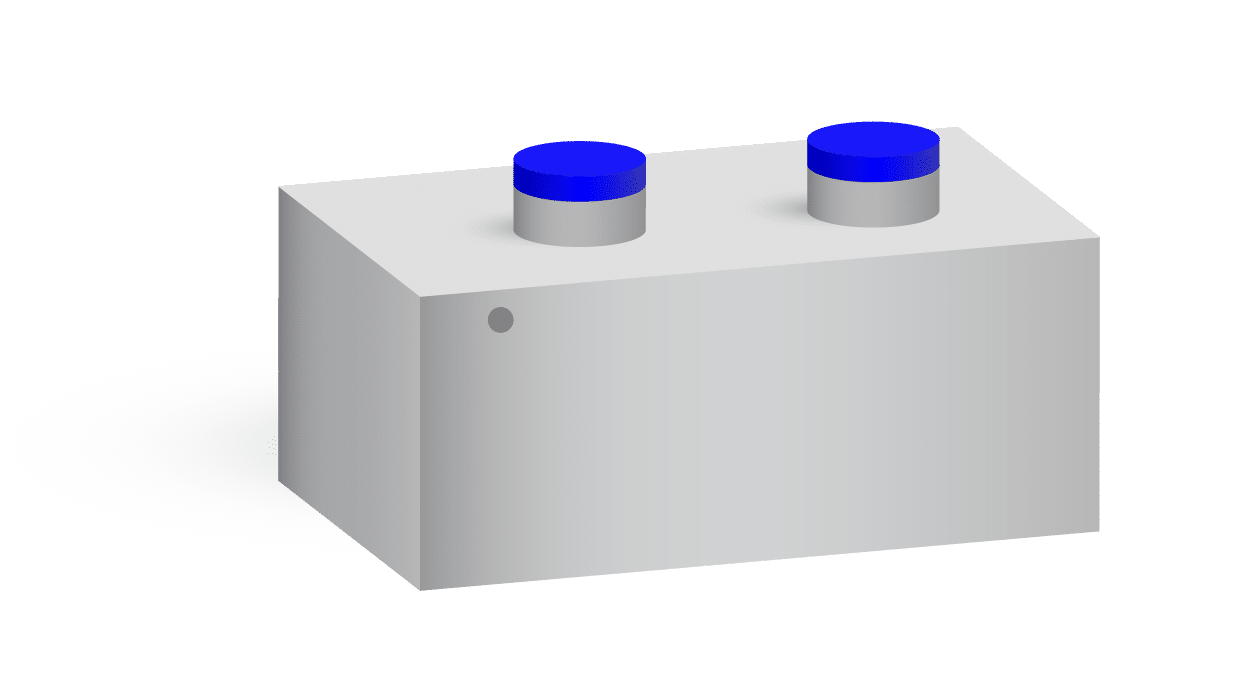
Concrete
Cost-effective and durable, concrete tanks are considered the most popular septic tank type in recent years. The material can last you 20 to 30 years, given proper maintenance. Regardless, they are prone to cracking over time. Many homeowners choose to reinforce the concrete material with rebar to improve its strength. It will cost you around $972 to $2,800 on average.
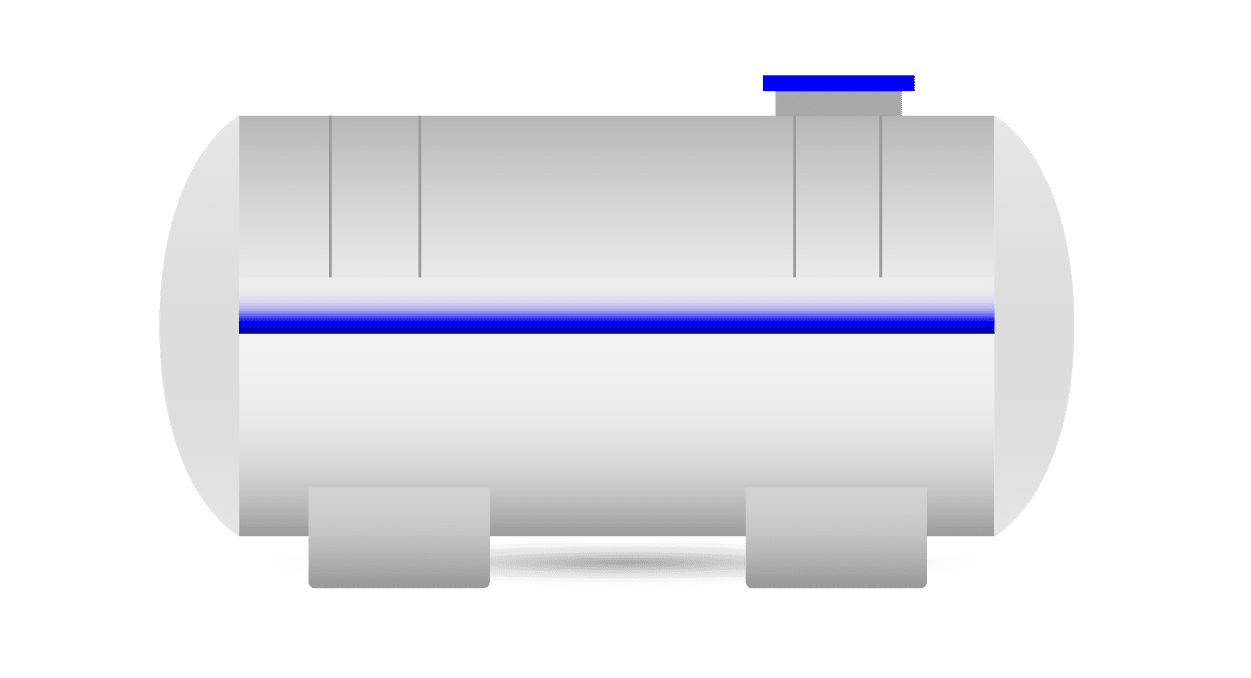
Fiberglass
If you're looking for a durable material suitable for underground use, fiberglass is the way to go. This non-porous material doesn't encourage the growth of algae. Homeowners will also benefit from its easy installation process, given that the material itself is light. It also isn't susceptible to cracking, unlike concrete. Expect to spend $2,160 to $2,700 for a standard fiberglass tank.

Plastic and Poly
Immune to water-based corrosion and damage, plastic septic tanks are a great, budget-friendly choice. The material is also resistant to rust, and they are easy and quick to install– saving you from expensive labor fees. On average, it costs $1,120 to $2,700.
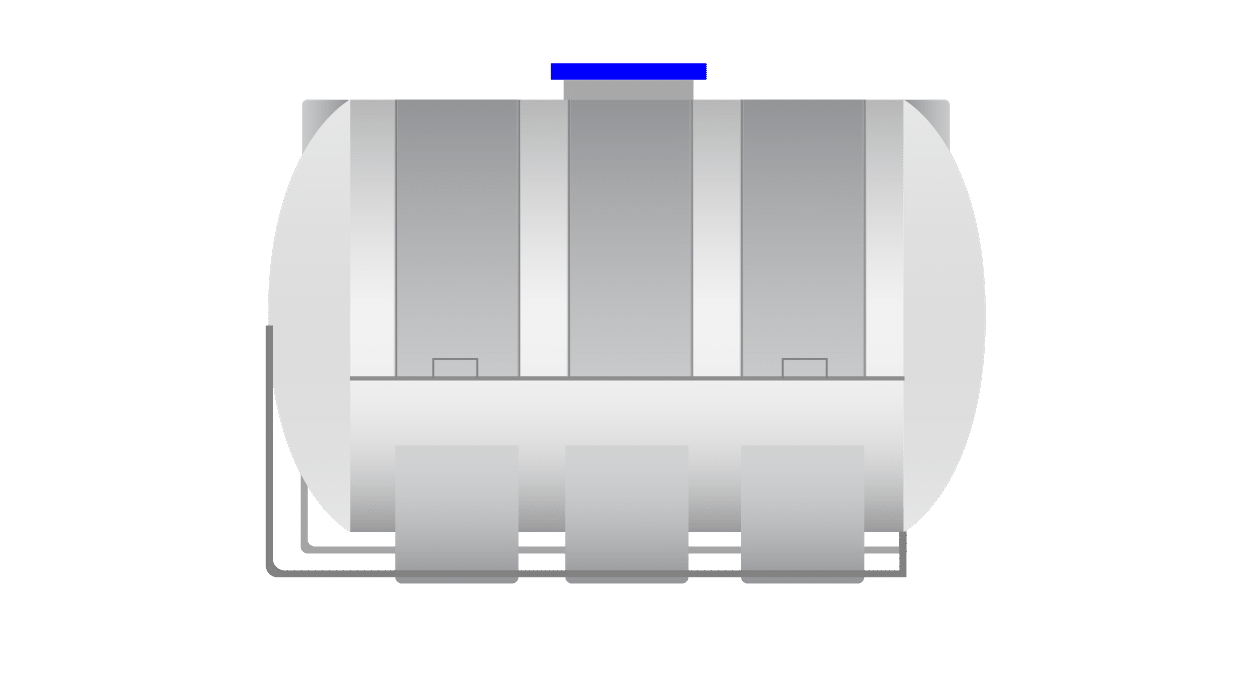
Steel
Although this material is known for its durability and strength, steel septic systems are prone to rust over time. If left overlooked, it might even collapse. This material costs $1,200 to $13,400 on average– although some areas discourage this material for septic tank usage.
Technically, the larger your house– the more extensive your septic system needs to be.
As previously mentioned, a good rule of thumb to follow is to determine the number of rooms in your household. Doing so will give you an excellent estimate of how much water flow you need in the system daily.
2-bedroom |
|---|
The minimum size is a 750-gallon septic tank. However, you can always go with a 1000-gallon size tank which is considered the standard. |
3-bedroom |
|---|
It is advised to go with a 1000-gallon water tank. It can handle around 360 gallons of water in a day, or probably even more. |
4-bedroom |
|---|
Typically needs a larger tank with a minimum volume of 1,250 gallons. It can handle 480 to 600 gallons of water on a daily basis. |
Commercial buildings |
|---|
You can select a 3,000-gallon sized tank to accommodate the needs of 15 occupants or more efficiently. A tank of this size will cost between $3,915 and $5,265. |
In some cases, you may opt to skip a complete septic tank replacement when specific parts are the ones with problems. Repairs and parts replacement will cost you cheaper than an entire system overhaul.
Here are some of the most common septic system-related repairs:
Repair Type | Average Costs |
|---|---|
Drain Field Tank Pump Tank Filter Tank Lid Tank Baffle | $4,725 - $14,850 $675 - $1,620 $310 - $378 $47 - $81 $400 - $675 |

The moment your leach field or drain field turns oversaturated, you may be putting your home at risk of wastewater backup. Worse, it may even cause flooding and overloading in your toilet and sink. The cost of installing a new one runs from $4,725 to $14,850.
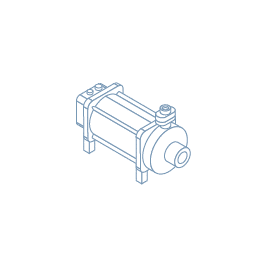
Because of old age and some other external factors, your septic tank pump may not efficiently transfer the effluent (wastewater) into the drain field like before. Replacing a failed pump will cost you $675 to $1,620 on average– including labor costs.

Considerably the most common septic system-related replacement, you might find yourself replacing your tank filter with new ones every once in a while. Expect to spend around $310 to $378 for it.

Given how concrete lids are prone to cracks and steel covers may rust over time, you will need to replace your tank lid once in a while. It will cost you around $47 to $81. Concrete tank lids are more difficult to replace– you may need to consider paying professional replacement services.

Baffles serve as a protective barrier to prevent your inlets and pipes from getting clogged by scum. Failed baffles, or those that get blocked in the end, are common among homeowners with a septic system at home. A typical baffle replacement will cost $400 to $675.
You can either choose from an underground or above-ground installation for your septic tank system.
Before proceeding with the installation process, it is crucial to secure relevant local permits– which may cost you somewhere between $405 and $675 on average.
Keep in mind that you may need different permits, depending on your state and jurisdiction. If your area requires an on-site inspector visit, prepare to pay for the additional costs. Generally, you will also need to pay renewal fees once your permit expires.
Labor makes up a significant amount of the total septic system costs. On average, most professional service companies charge you between $2,025 and $5,400 for installation. It includes the materials, labor work, and insurance or warranty depending on the company.
In most cases, homeowners need to clear the landscaping upon finding the best location in their property to install a septic system. Doing so will prepare the site accordingly before installation. It will cost you somewhere around $1,620 to $6,080.
You may also need to undergo a soil quality test (a percolation test) to prove that the ground meets all the local health department requirements. Your contractor will usually test the permeability of the soil, as well as the sediment layers. You may spend an additional $1,350 to $2,700 for this.
To ensure that your septic system will function smoothly, you need to keep an eye on the proper installation of your leach field. The process may get a bit confusing given how pipework is also involved.
On average, this will cost you $2,500 to $13,000– depending on several factors such as soil content, size, and the need for a unique drainage system.
Should you need to replace your current septic system, your contractor will need to remove it at an additional cost. They have the expertise and special equipment necessary to carry out the septic tank removal job safely.
In particular, your old tank will need to be emptied out first before it is removed and properly disposed of. Pumping out a tank is charged at $340 to $800, while the entire removal process will cost you $7,500 on average.
Adding a septic riser allows easy tank access at ground level– after installing a piped shaft from the tank's top to bottom deck. The installation approximately costs $400 to $500.
This crucial addition will make it easier for your contractors to do their work easily should your tank need timely maintenance activities or repairs.
Telling Signs of Septic Tank Problems
Homeowners can expect their septic tank to last a good 20 to 40 years, given proper maintenance and regular inspections. In some cases, however, you may need to replace the septic system at some point if some telling signs arise out of the blue.
Keep a close eye on some of these common septic system issues:
One of the most common issues suggesting a possible septic system problem is a toilet flushing problem. If you feel like the pipes are currently clogged, the chances are that may be the case. Consult your local plumber at once to determine if the septic tank is the cause of the said problem.
If you’re dealing with a strange odor and foul smell in your household, one of the first things you should check is your septic system. The smell of sewage, in particular, can be caused by full septic tanks that are leaking waste. Your leach field could also be contaminated by wastewater.
If there are patches of grass that grow unexpectedly around your septic tank and drain field, consider it a sign to have it assessed by your contractor. A wastewater leak may fertilize any greenery in your septic system– which is rather unhygienic. With that in mind, the only way to know for sure is to consult a professional's opinion.
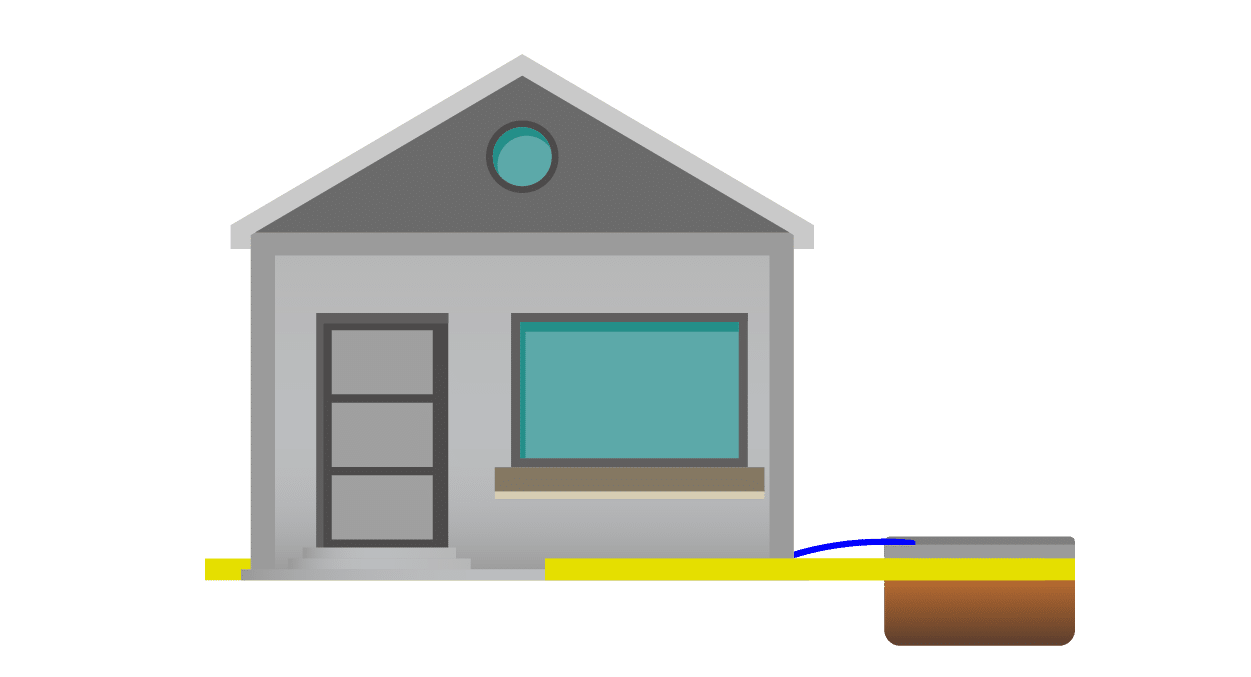
Older homes typically have old septic systems. If you see yourself frequently spending on repairs and other related issues, you may benefit from a complete septic tank system overhaul instead. Undoubtedly, it will save you money in the long run.
Benefits of Hiring a Professional Septic Tank Service
Properly installing a septic system is no easy task, even if you’re an experienced homeowner when it comes to DIY home improvement projects. For safety purposes, it will be best to leave the installation process in the hands of a professional service company. You can count on their license, expertise, and insurance to carry out the task safely.
Remember that improper installation of your septic tank system will result in foul odors, contaminated water sources, and standing water. You may only be putting yourself and other people at risk.
Hence, consider it a worthwhile investment to hire qualified professionals to do the job. If you're still unconvinced, here are some other benefits you can enjoy:
Harmful bacteria and gas in your septic tank may accidentally leak after an improper installation– putting yourself at risk of several illnesses. You may even be unknowingly spreading infections in the vicinity. Septic waste is nothing but hazardous. Free effluence build-up may only cause toxic microorganisms to thrive and spread out rapidly. Accordingly, a clogged tank may also filter wastewater on your property. Not only can it destroy your yard, but it may also even cause havoc in the surrounding areas.
Hiring a professional tank service company will guarantee you a job done safely. These professionals often use protective gear while carrying out the work, such as safety goggles, gloves, and masks.
As previously mentioned, any septic system work requires experience, skill, and in some areas– a permit and license to do the job. In choosing a tank service company, ensure to select an established business with top-rated testimonials regarding their effective services.
Look for companies with certified or qualified technicians that have extensive experience and training. It will guarantee you top-notch septic system work– knowing that this service can come at a cost.
You can rely on septic system professionals, given how they have been doing related work for many years. These experts handle all septic-related projects faster with the right tools and knowledge.
If you're thinking of selling your property shortly, you might want to ensure your septic system is maintained correctly as early as today.
Any potential buyer will probably ask you about its condition. If you have a fully functional, well-maintained septic tank– it can serve as a great selling point and property feature.
Your septic system's excellent condition will consequently improve the value of your home. Accordingly, a poorly maintained and declining tank will negatively affect its value. It's another reason why regular professional septic system services are always ideal.
Nobody likes wasting time, especially if you're a homeowner who lives a busy, on-the-go life. Any septic system-related project will undoubtedly consume a significant amount of time. So if you do not have the luxury of spare hours, you might want to seek professional services to take care of it.
These trained professionals have the knowledge and experience to give you desired results. You can count on these qualified experts to do the job without any additional delay, given that most can point out the problem or source of the issue after a thorough initial assessment.
Hiring an expert septic tank service also gives you the assistance you need to keep your septic system safe from any long-term problems, such as leaking.
These experts can offer you practical tips on effective tank maintenance using readily available tools at home.
Checklist/Criteria in Choosing a Septic Tank Service Dealer
Labor fees for a professional septic system service will cost you from $1,500 to $3,000 on average. Accordingly, several homeowners consider it to be a significant investment. Of course, the actual total expenses will still depend on your tank size, type, and materials. Choosing a reputable professional septic tank company is one decision that shouldn't be taken lightly.
Make the most bang out of your buck by creating a practical checklist or criteria in selecting the best septic system contractor.
Technicians with at least three years of experience
Companies offering a guarantee or warranty in writing
A+ rated with the Better Business Bureau
With many positive testimonials online
Follows all necessary permits and building codes
Most septic system companies will claim they are the best choice, but it's also essential to research how verified their credentials are. You can start by contacting the nearest local health department to check the certified companies near you.
Remember, a septic tank plays a crucial role in managing the waste in your home safely. You are responsible for selecting a septic system company with the proper credentials to avoid dealing with regrets in the long run.
One foolproof way to choose a reputable septic system company is to ask your friends, loved ones, or neighbors about personal recommendations.
Ask them about the previous businesses they have worked with for their septic tank issues and if they are relatively satisfied with their services. Doing so will help you narrow down the many choices on your list. Another great way to determine positive service feedback is to check online reviews. The Better Business Bureau website is also a great portal to see the names of companies with a clean, top-quality track record.
Lastly, it is crucial to contact the companies on your shortlist personally. Doing so will allow you to ask relevant questions, such as their licenses, training, and years of service. You can also ask about the services they provide and their expected price points.
You may also list the average septic system service costs from different companies to determine which one best fits your budget and needs. Some companies offer consistent maintenance for your septic system, free quotes or cost consultations, as well as around the clock customer service.
Keep in mind that your tank needs regular professional septic system services at least once every three years. It ensures a well-functioning system in the long run. A septic system's poor condition, if left overlooked, might negatively affect your home's water quality and its cleanliness.
Septic Tank System: Frequently Asked Questions (FAQs)
How long does a septic tank last?
A septic tank will typically last around 15 to 20 years, depending on the system installed and the materials used. However, its lifespan may decrease when clogged by roots or flooded from groundwater. If you want to prolong your system's lifespan, remember to have it regularly serviced so that a professional can pump, inspect, and maintain the tank.
What type of septic tank is the best?
There is no definite answer for the best type of septic tank. However, determining the ground composition and the size of your home can help you identify the best system with the help of a qualified professional. Some of the commonly used septic tanks are concrete, which is versatile and long-lasting, and fiberglass, which can resist corrosion.
How often does a septic tank need to be pumped?
Septic systems are made to suit your home's wastewater output making the tank capacity different from each household, but they are usually designed to store at least three years’ worth of sludge before the need to be pumped.
What other home improvement projects can I do at the same time as septic tank installation?
An underground septic tank system installation usually requires excavation. Once the excavators break ground, you can also do other underground projects such as installing a sprinkler system, placing underground utilities, and building a retaining wall. Being able to do so can save you a lot of time and money in the long run.
Conclusion
At the end of the day, septic systems are an integral part of your home. It is essential to have it regularly assessed and serviced if you want to prolong its longevity and keep your house out of harm’s way. Doing so will ensure everything is in the proper working order.
However, if your septic tank has been around for more than 15 to 20 years– it might be time for a complete replacement. Consider it a significant investment to improve the value of your property.
